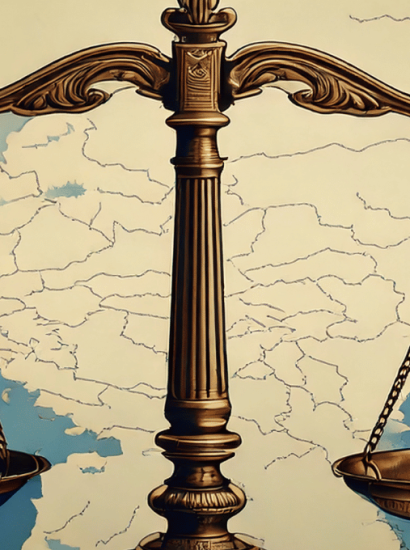This post is also available in: ΕΛΛΗΝΙΚΑ (GREEK) TÜRKÇE (TURKISH)
On 23 September 2025, Recep Tayyip Erdoğan used the most official platform at the UN, the General Assembly, to restate Ankara’s framework for resolving the Cyprus issue. This framework differs little from the one he presented from the same podium in September 2024. This year, however, he went a step further regarding energy plans in the Eastern Mediterranean, stating that no plan, scheme or project would proceed without the participation of Ankara and the ‘TRNC’.
“Turkey has rights and jurisdiction west of Cyprus, whilst the Turkish Cypriots have legitimate rights around the island,” he said specifically, adding that “projects that exclude Turkey and the ‘Turkish Republic of Northern Cyprus’ in the Eastern Mediterranean will not proceed.”
On the solution to the Cyprus problem, he was equally clear: “The solution to the Cyprus issue cannot be based on the federal model that has been tried many times and failed… There are two separate states and two separate peoples on the island. The Turkish Cypriots are equal owners and will never accept being a minority.” He called on the international community “to end the unjust and inhumane isolation of the Turkish Cypriots” and demanded “official recognition of the ‘Turkish Republic of Northern Cyprus’ and the establishment of diplomatic, political and economic relations” with it.
Several days later, Ersin Tatar repeated the same message. Hardly surprising. Tatar has advocated a two-state solution since before his election and continues to do so. Indeed, he was elected on this narrative and is seeking re-election as Turkish Cypriot leader with the same message in the ‘presidential’ elections scheduled for 19 October.
Tatar’s opponent is Tufan Erhürman, the leader of the Republican Turkish Party, a party considered the most moderate in the occupied areas regarding a Cyprus settlement.
But is this what matters? What a Turkish Cypriot politician wants, or what Ankara wants and what Ankara’s plans are? We know what Ankara wants because Recep Tayyip Erdoğan told us just days ago from the UN podium: a two-state solution.
From Erhürman’s own party, we have previously had a Turkish Cypriot leader, Mehmet Ali Talat, who served from 2005 to 2010 as the second Turkish Cypriot ‘president’ after their historic leader Rauf Denktaş.
Back then, circumstances were far more favourable than today for three reasons:
Firstly, Ankara had not officially declared that its objective was a two-state solution but claimed it remained ‘committed’ to a bizonal, bicommunal federation.
Secondly, it was just a year after the rejection of the Annan Plan and the prevailing mood was that ‘improvements to the Plan’ and a comprehensive solution were on the table.
Thirdly, in 2008 Demetris Christofias and AKEL came to power, and for two years (until 2010) they negotiated with perhaps the most moderate Turkish Cypriot politician ever to lead the Turkish Cypriots, without reaching a final settlement.
It is therefore clear that believing an Ersin Tatar defeat and a Tufan Erhürman victory would ‘pave the way for a BBF solution’ is either mistaken or, at best, overly optimistic.
In other words, if Erhürman is elected, will he advocate BBF whilst Ankara pushes ‘two states’? Does anyone believe this, or that this would continue at the negotiating table, with the two sides having different frameworks for a solution? Erhürman on one side and Ankara on the other?
Unless Erhürman persuades Ankara and the latter changes its framework… One can hope, but these are likely pipe dreams, as Turkey’s then Foreign Minister Mevlüt Çavuşoğlu told us publicly at Crans-Montana (29 June 2017) and later repeated from the podium of the Turkish Grand National Assembly (18 December 2018), that Greek Cypriots are having midsummer night’s dreams about a solution with zero Turkish guarantees and zero Turkish troops.
And before I close, to pre-empt various comments such as: So you’d prefer Tatar to remain? An absurd question, because it goes without saying that as the Greek Cypriot side we prefer and should prefer moderate Turkish Cypriot politicians, particularly in the position of Turkish Cypriot leader. Things are more likely to be better with Erhürman, confidence-building measures and various other agreements are more likely, but that is not the essence of the matter. The essence is the solution and the framework for a solution. And this is determined neither by Tatar nor by Erhürman. It is determined by Ankara.
This article was first published on 28.09.2025






